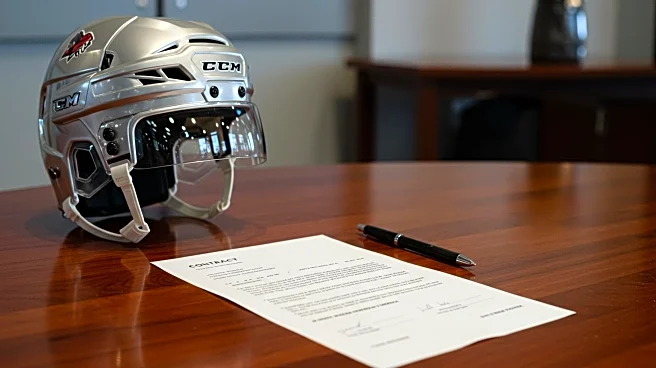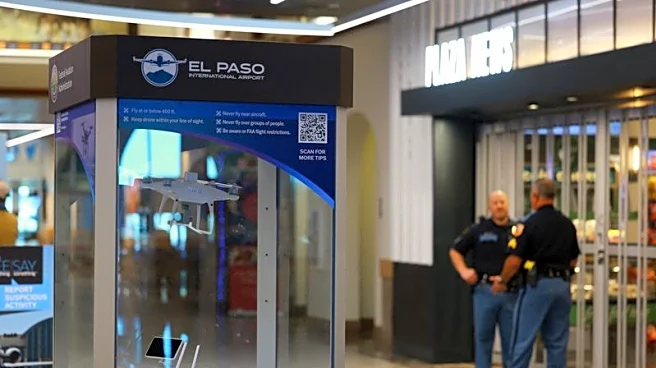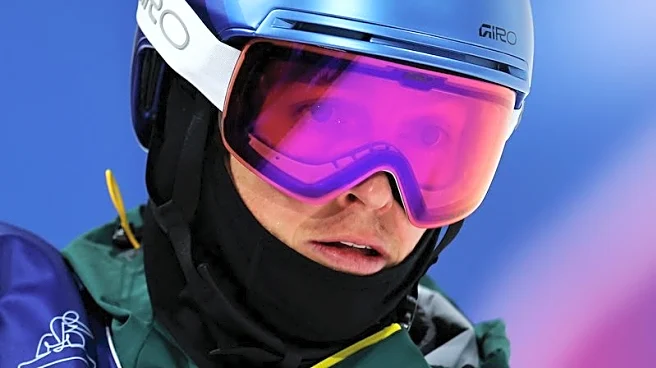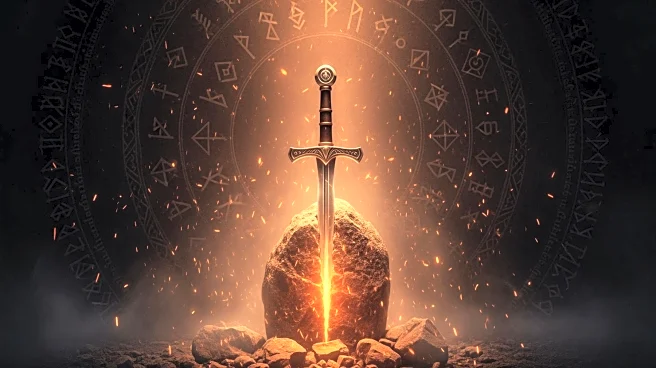What's Happening?
The San Jose Sharks are currently facing uncertainty regarding the signing status of their No. 2 overall pick, Michael Misa. Misa, an 18-year-old center, is expected to be a key player for the Sharks in the upcoming seasons. After a successful stint with the Saginaw Spirit in the CHL, where he led the league with 134 points, Misa is poised to make the transition to NHL hockey. However, questions remain about whether he will sign his entry-level contract this summer or opt for the NCAA route. Misa's brother, Luke, is set to play at Penn State, and there is speculation about Misa's potential move to NCAA hockey. Despite this, sources suggest that there is mutual interest in getting Misa under contract with the Sharks, which would make him ineligible for NCAA play.
Why It's Important?
The decision regarding Michael Misa's signing is significant for the San Jose Sharks as it impacts their roster and player development strategy for the 2025-26 season. If Misa signs his entry-level contract, he could participate in the Sharks' training camp and potentially play in NHL games, providing the team with a promising young talent. Conversely, if Misa chooses the NCAA route, it could delay his integration into the NHL, affecting the Sharks' long-term planning. The outcome of this decision will influence the Sharks' competitive edge and their ability to nurture young prospects effectively.
What's Next?
The Sharks are expected to continue discussions with Misa and his representatives to finalize his signing status. If Misa signs his entry-level contract, he will join the Sharks for training camp and potentially play in NHL games. Alternatively, if he opts for the NCAA, he will play for Penn State, delaying his NHL debut. The Sharks must ensure Misa's development aligns with their strategic goals, balancing immediate team needs with long-term player growth.
Beyond the Headlines
Misa's decision could reflect broader trends in player development, where young prospects weigh the benefits of immediate professional play against collegiate experience. This choice may influence future draft picks and the Sharks' approach to nurturing talent, highlighting the evolving dynamics between junior leagues, NCAA hockey, and the NHL.










